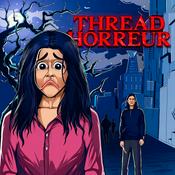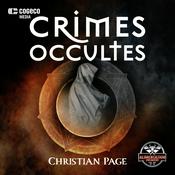141 épisodes

Pourquoi je déteste Noël - Creeps McPasta
25/12/2025 | 13 min
Christmas SpecialHébergé par Ausha. Visitez ausha.co/politique-de-confidentialite pour plus d'informations.

Fils Croisés - Ian Gordon (2024)
24/12/2025 | 30 min
Une émission de radio de 1978 reprend vie ainsi que tous ses mystères.Hébergé par Ausha. Visitez ausha.co/politique-de-confidentialite pour plus d'informations.

It will grow on you - Donald Wandrei (1942)
21/12/2025 | 27 min
Hébergé par Ausha. Visitez ausha.co/politique-de-confidentialite pour plus d'informations.

Retour à la Mort (J.W.Rosenquest - 1936)
18/12/2025 | 16 min
A la mort d'un notable de la ville de Rotenberg, tous se souviennent d'un homme bon mais aussi, de quelqu'un qui avait peut-être perdu sa voie vers Dieu.Hébergé par Ausha. Visitez ausha.co/politique-de-confidentialite pour plus d'informations.

Un Mystère du Pôle Sud - Hamilton Drummond (1902)
14/12/2025 | 38 min
Hébergé par Ausha. Visitez ausha.co/politique-de-confidentialite pour plus d'informations.
Plus de podcasts Fiction
Podcasts tendance de Fiction
À propos de Arkham Inn
Écoutez Arkham Inn, C'est plus que de la SF ou d'autres podcasts du monde entier - avec l'app de radio.fr

Obtenez l’app radio.fr gratuite
- Ajout de radios et podcasts en favoris
- Diffusion via Wi-Fi ou Bluetooth
- Carplay & Android Auto compatibles
- Et encore plus de fonctionnalités
Obtenez l’app radio.fr gratuite
- Ajout de radios et podcasts en favoris
- Diffusion via Wi-Fi ou Bluetooth
- Carplay & Android Auto compatibles
- Et encore plus de fonctionnalités


Arkham Inn
Téléchargez l’app,
Écoutez.





































